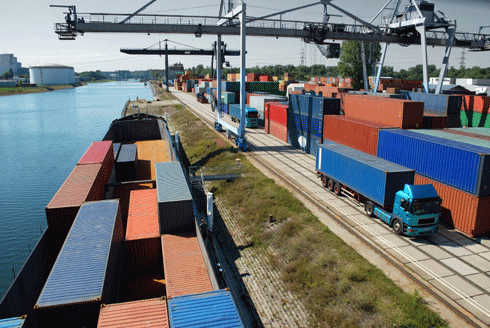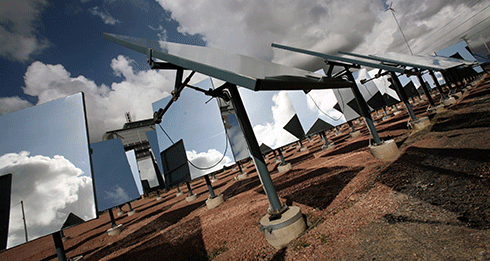Published: 4 July 2011
Assured sustainability reporting – navigating obligations
Nick Fleming
As the way in which organisations address environmental, social and governance (ESG) issues comes under increasing scrutiny, sustainability reporting is gathering importance and momentum. Yet reporting must be seen as a product of sustainable business practices, not the focus of it.

|
|
Emphasis on more robust sustainability reporting is helping to drive the wider assessment and reform of companies’ associated supply chains and logistics infrastructure. Credit: iStockphoto
|
While sustainability reporting is new territory for some organisations, many leading businesses have been engaged in reporting for over a decade. Indeed, sustainability reporting is typically one of the first vehicles for engagement with the topic and issues of sustainability, often at the encouragement of a few passionate staff.
However, the call for greater organisational accountability and transparency is growing. An increasing number of shareholder resolutions are placing pressure on company boards to ensure they are effectively identifying, disclosing and addressing ESG risks. Institutional investors are already using ESG data to differentiate firms and guide investment decisions.1
Powerful customers are also forcing their suppliers to become more transparent. The classic example is Walmart, which launched a supplier sustainability initiative in July 2009. Locally, Woolworths recently announced its own Sustainable Fish Sourcing Strategy.2
There is also an expectation for assurance. This reflects a stakeholder desire for reports to be relevant, reliable and free from bias, while the reporting organisation wishes to build a case for lower costs for finance and insurance. This all takes time and money; reporting can be a costly exercise and carries risks.
The banking sector provides an insight to the challenges posed by sustainability reporting. In Australia, banks have typically lead sustainability reporting and have performed well against international benchmarks such as the Dow Jones Sustainability Index. Yet this year, the big four banks have been publically criticised over their involvement with coal-fired power stations.3 People ask how an organisation that receives sustainability accolades can also finance environmental pollution. This questions the connectivity between sustainability reporting and governance.
Scrutiny is also being applied by the regulators. The Australian Competition and Consumer Commission has prosecuted cases against companies such as GM Holden and Prime Carbon for overstating their ‘green’ credentials. It’s clear that inaccurate communication on ESG matters presents serious risks to an organisation’s reputation – and that of the rating or assurance agency.
These issues have been behind recent reviews of reporting guidelines and benchmarking methods.4,5 The reviews found that ratings and reporting tend to be backward-looking measures of compliance with ‘good practice’, failing to enable a meaningful assessment of an organisation’s ability to create and sustain value, in the short and longer term.
What’s lacking is adequate interrogation and reporting of the strategic capabilities and the core competencies required to underpin business continuity and delivery of sustainable outcomes; that is, a truly sustainable enterprise.
However, the push for integrated financial and non-financial (sustainability) reporting may offer a silver lining – the trigger to focus conversations among executives and boards about the things that will drive genuine business continuity, profitability and sustainability. Without these conversations, there will neither be the understanding, focus nor commitment to cultivate truly sustainable enterprises.
The adage ‘What gets measured gets managed’ remains true; as does ‘It’s what you do, not what you say, that counts’. Reporting without subsequent actions to manage risks and create value is meaningless, and arguably harmful.
While there are growing market and stakeholder pressures for integrated reporting of financial and ESG matters, reporting should only be entered into with an eye on:
-
material business risks
-
core competencies for organisational continuity
-
a core set of meaningful performance measures that offer real insight
-
integrating reporting into governance
-
commitment to real action in response to identified risks and opportunities.
Organisations that assume this approach take sustainability reporting beyond a ‘nice?to?have’ PR exercise to a ‘must?have’ business improvement tool. It’s a factor in the superior financial performance demonstrated by ethical and sustainable organisations. Getting it right is good for business – and good for communities.
Dr Nick Fleming is Chief Sustainability Officer Sinclair Knight Merz, leading the application of sustainability thinking in business operations and client services. Through his Sustainable Enterprise column, Nick provides insight to how businesses and organisations are effectively putting sustainability theory into practice.
1 Ernst & Young (2011). Shareholders press boards on social and environmental risks. tinyurl.com/social-environmental-risks
2 tinyurl.com/sustainable-fish
3 Greenpeace (2011). Pillars of pollution. www.greenpeace.org.au/climate/GI-profundo.php
4 Eccles RG, Cheng B, Saltzman D (Eds) (2010). The landscape of integrated reporting: reflections and next steps. Harvard Business School. tinyurl.com/integrated-reporting
5 SustainAbility (2011). Rate the raters: uncovering best practices. www.sustainability.com/library/rate-the-raters-phase-one





